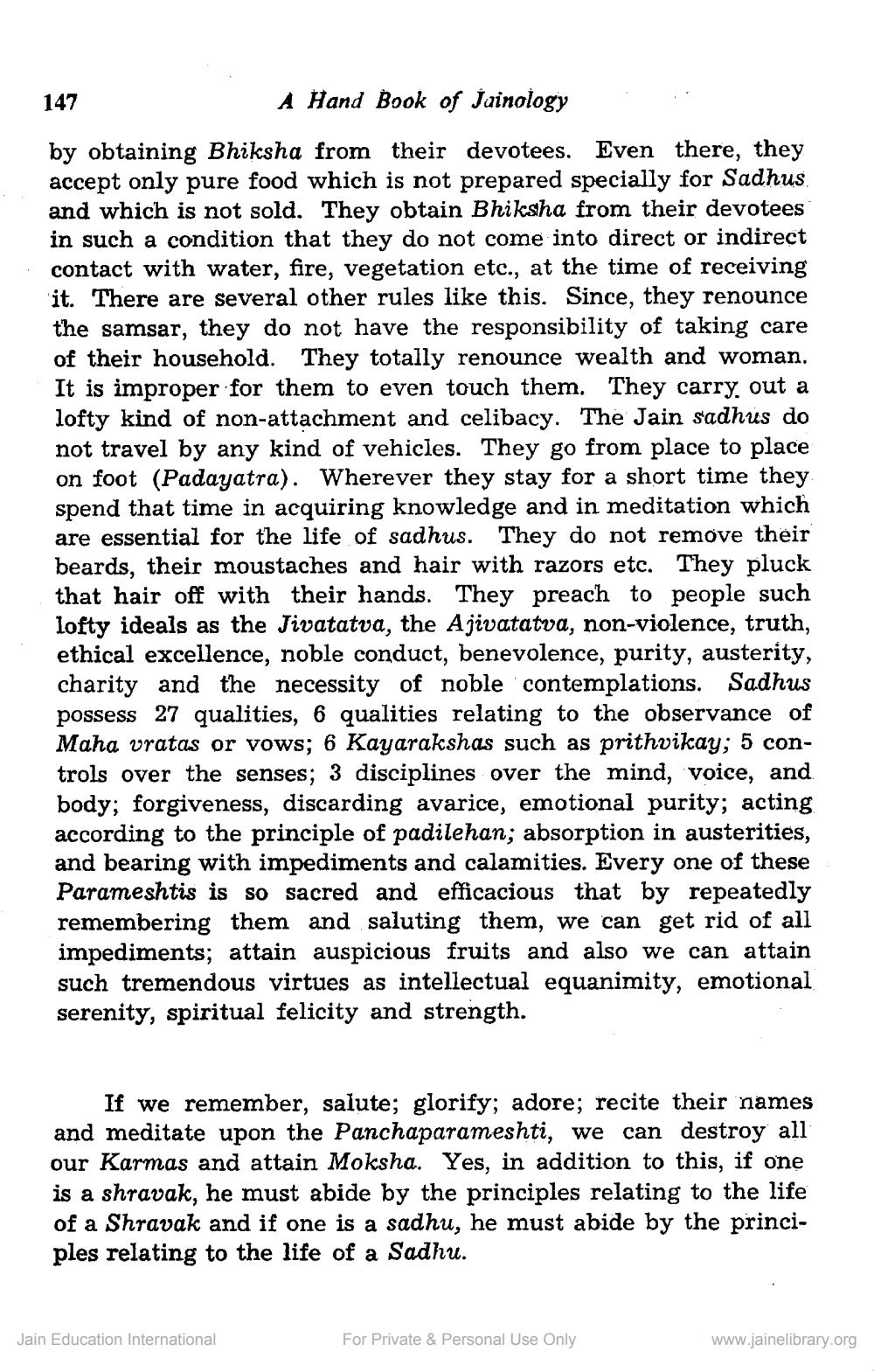________________
147
A Hand Book of Jainology
by obtaining Bhiksha from their devotees. Even there, they accept only pure food which is not prepared specially for Sadhus and which is not sold. They obtain Bhiksha from their devotees in such a condition that they do not come into direct or indirect contact with water, fire, vegetation etc., at the time of receiving it. There are several other rules like this. Since, they renounce the samsar, they do not have the responsibility of taking care of their household. They totally renounce wealth and woman. It is improper for them to even touch them. They carry out a lofty kind of non-attachment and celibacy. The Jain sadhus do not travel by any kind of vehicles. They go from place to place on foot (Padayatra). Wherever they stay for a short time they spend that time in acquiring knowledge and in meditation which are essential for the life of sadhus. They do not remove their beards, their moustaches and hair with razors etc. They pluck that hair off with their hands. They preach to people such lofty ideals as the Jivatatva, the Ajivatatva, non-violence, truth, ethical excellence, noble conduct, benevolence, purity, austerity, charity and the necessity of noble contemplations. Sadhus possess 27 qualities, 6 qualities relating to the observance of Maha vratas or vows; 6 Kayarakshas such as prithvikay; 5 controls over the senses; 3 disciplines over the mind, voice, and body; forgiveness, discarding avarice, emotional purity; acting according to the principle of padilehan; absorption in austerities, and bearing with impediments and calamities. Every one of these Parameshtis is so sacred and efficacious that by repeatedly remembering them and saluting them, we can get rid of all impediments; attain auspicious fruits and also we can attain such tremendous virtues as intellectual equanimity, emotional serenity, spiritual felicity and strength.
If we remember, salute; glorify; adore; recite their names and meditate upon the Panchaparameshti, we can destroy all our Karmas and attain Moksha. Yes, in addition to this, if one is a shravak, he must abide by the principles relating to the life of a Shravak and if one is a sadhu, he must abide by the principles relating to the life of a Sadhu.
Jain Education International
For Private & Personal Use Only
www.jainelibrary.org




